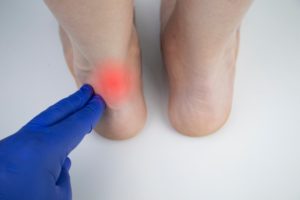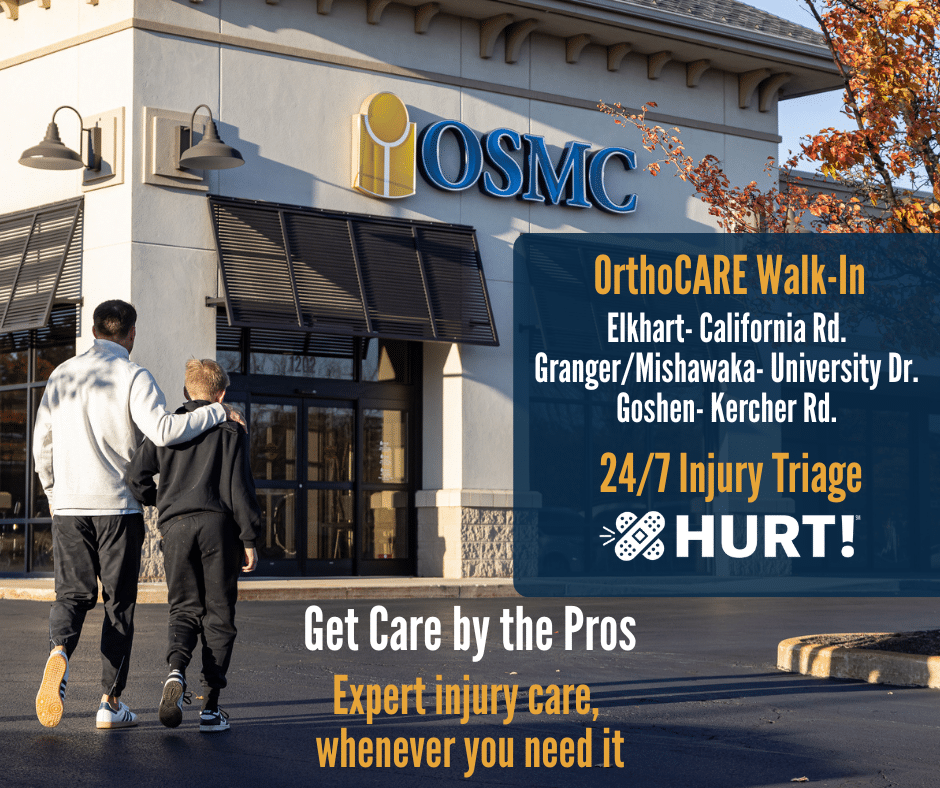
Achilles Heel Pain: Causes, Treatment and FAQs.
Are you experiencing pain or burning near your heel or on the back of your leg? Perhaps you have a limited range of motion when flexing your foot? Do you have warmth around your heel or along the tendon? Are you wondering if you should visit an orthopedic doctor for a possible Achilles tendon issue?
Then you’ve come to the right place! In this article, we review the Achilles tendon, the common conditions that affect patients, and the treatment options out there.
Learn more about Foot and Ankle Surgery >>
What is Achilles Tendon Pain?
Achilles tendon pain happens because the tendon, like all tendons, is strong but not very flexible. The Achilles tendon, which has limited extensibility, connects the calf and lower leg muscles to the heel bone. You use the Achilles tendon to jump, walk, run, and stand on the balls of your feet. When overused, the tendon becomes inflamed, a condition known as tendonitis, or it tears or ruptures.
What are the Causes of Achilles Tendon Pain?
Achilles tendonitis and Achilles tendinosis are the two most common causes of pain in the Achilles tendon. Even though they sound the same, these are two different problems.
Achilles Tendonitis
Achilles tendonitis is an injury to the Achilles tendon that makes it swell. Those most likely to suffer from an Achilles tendonitis injury are runners and others who play sports such as tennis that require a lot of starting, stopping, and turning. Those that wear high heels daily or for long periods of time may develop the malady.
This type of tendonitis is marked by pain in the Achilles tendon. People often compare it to a burning that gets worse when they move. While the Achilles tendon connects the calf and lower leg muscles to the heel bone, this tendon has a limited range of motion.
Achilles Tendinosis
Achilles tendinosis is a long-lasting problem that happens when tendonitis is not treated. When a person has tendinosis, the collagen fibers in the tendon break down.
This wear and tear can also damage the Achilles tendon and can lead to the formation of scar tissue, which can cause permanent thickening.
Achilles Tendon Rupture
Ruptures of the Achilles tendon are rare. They occur when the fibers of the tendon tear and separate, either all at once or in pieces.
Some people hear a “pop” or “snap” and feel severe heel pain when their Achilles tendon tears. When a tendon is torn, there may be a visible gap. Most often, a person can’t walk or put weight on their foot after a tendon rupture.
Treatment for Achilles Tendon Pain
There are many ways to treat pain in the Achilles tendon. They include changing how much you move, seeing a podiatrist, attending physical therapy, taking medicine, and having surgery. Depending on the cause of your tendon pain, there are many different treatment paths to take:
- Self-care – Achilles tendonitis may be taken care of on your own by the following methods. Also, these treatments may help if you rupture the tendon, until you can get help from medical professionals.
-
- Reducing activity and resting
- Icing the troubled area
- Elevation of your foot to decrease swelling
- Shoe orthotics to take tension off your tendon
- Medication – Talk to your doctor about taking an over-the-counter anti-inflammatory medication to ease the pain of any problem with your Achilles tendon. However, it’s important to remember this should not be the only form of treatment if your condition is severe
- Physical therapy – If you have Achilles tendonitis, it’s a good idea to start calf-strengthening exercises as soon as your doctor says you’re ready. On the other hand, if you have Achilles tendinosis, you may need a special program to help your condition improve
- Surgery – A ruptured Achilles tendon may need surgery within a few days after your injury. The two ends of the tendon will be stitched back together by an orthopedic surgeon. After surgery, physical therapy is an important part of healing and back to your normal activities
Achilles tendon pain is no joke! It’s very painful and just plain frustrating, to say the least. At OSMC, we care about your comfort and recovery. We take time with patients; offer treatment options and you decide the solution that’s right for you.
Reach out to us at (574)207-0043 and schedule an appointment today to put a halt to your Achilles tendon pain.
This blog post is not intended to provide personal medical advice, professional diagnosis, opinion, or treatment to you or any other individual. It is information for educational purposes only. You should not use this information in place of a consultation or the advice of a healthcare provider.



